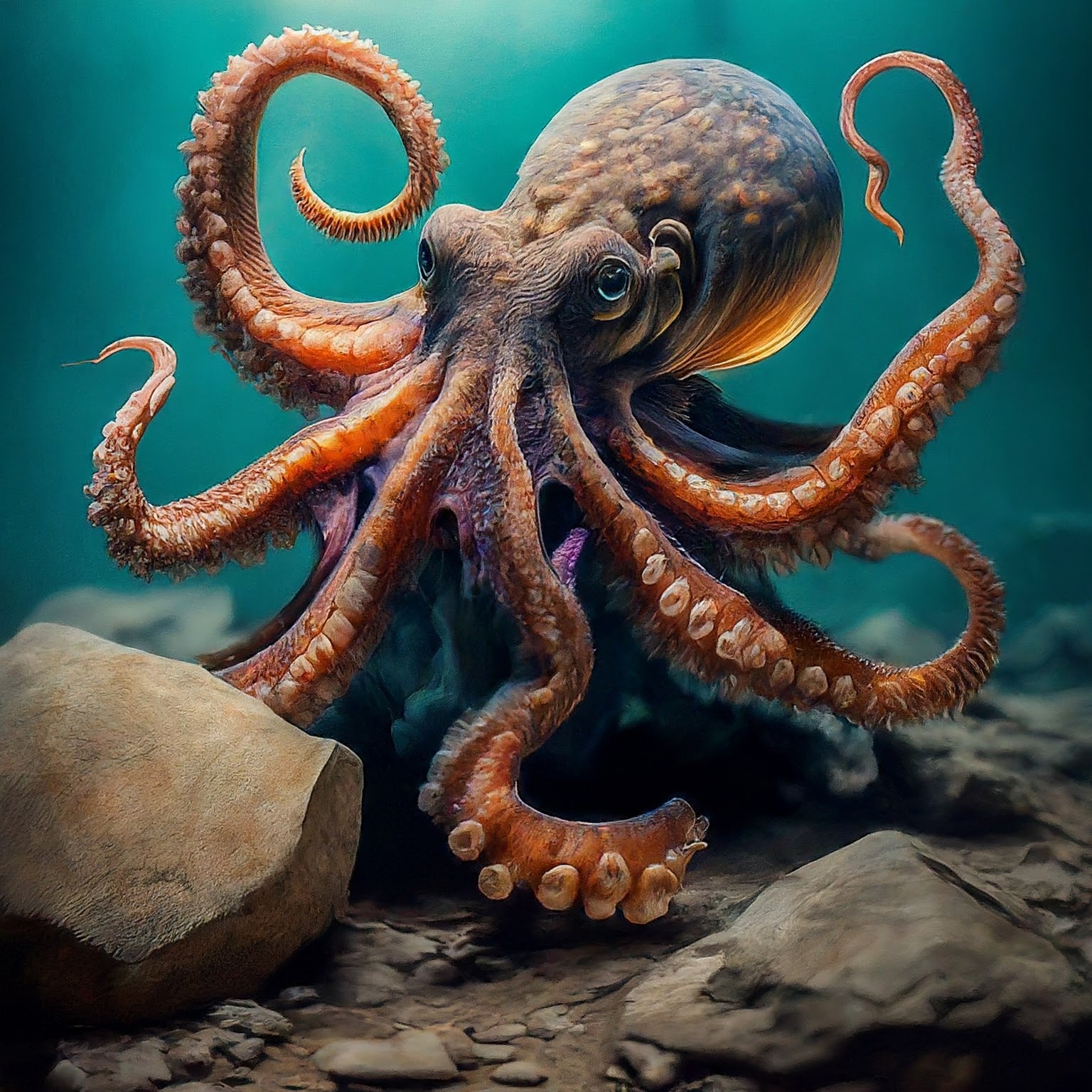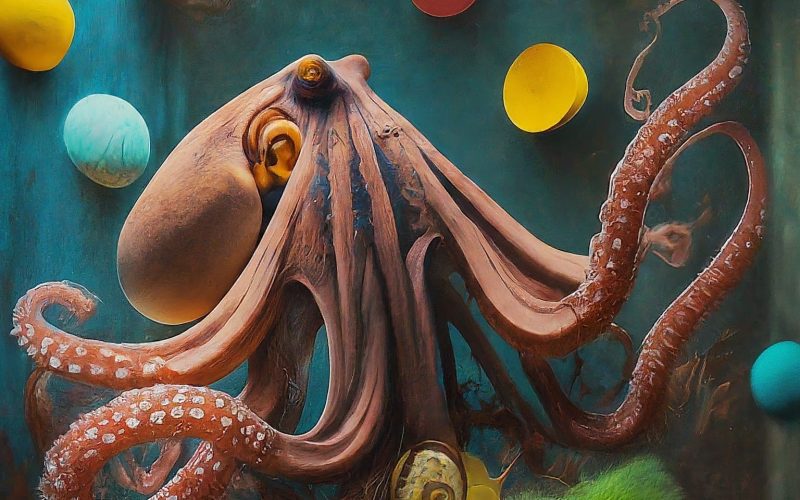Introduction
Dr. Anita Patel, a marine biologist with over 15 years of experience studying cephalopods, has always been fascinated by the intelligence and adaptability of octopuses. But one behavior in particular continues to intrigue and puzzle her: self-mutilation, or autophagy. In this article, Dr. Patel dives deep into the science behind why octopuses sometimes resort to eating their own arms, exploring the role of stress, boredom, and the importance of environmental enrichment for these amazing creatures.
Stressed & Snacking: Why Octopuses Eat Their Own Arms
The octopus, with its eight powerful arms and inquisitive nature, is one of the most intelligent invertebrates in the ocean. These brainy beings can solve puzzles, escape from captivity, and even camouflage themselves to blend seamlessly into their surroundings. But beneath this intelligent exterior lies a surprising and unsettling behavior: self-cannibalism, also known as autophagy.
The Curious Case of the Cephalopod Chef
Imagine this: you’re watching a captivating documentary about octopuses, marveling at their agility and problem-solving skills. Suddenly, one of the octopuses on screen reaches out with an arm and…takes a bite out of it! This bizarre behavior, though not common, has been observed in octopuses across various species. While the sight may be disturbing, understanding the reasons behind it can shed light on the complex needs of these fascinating creatures.
Decoding Autophagy: The Science of Self-Eating
Autophagy, literally meaning “self-eating” in Greek, is a cellular process where an organism breaks down and consumes parts of its own body. While this may seem counterintuitive, it’s actually a normal cellular response used to generate energy or eliminate damaged cells. However, in the case of octopuses, the self-eating behavior seems to be a more deliberate act, often involving the consumption of a tentacle.

Stressful Situations: Triggers for Tentacle Tantrums
So, why would an octopus chomp down on its own arm? Scientists believe that stress and boredom are major contributing factors. Octopuses are highly intelligent animals that thrive on mental stimulation. In captivity settings where they lack enrichment and opportunities to explore, they may become stressed and resort to self-mutilation. Additionally, injury or infection in a tentacle may also trigger an octopus to detach and consume it to prevent the spread of the problem.
Beyond Boredom: The Complexities of Octopus Well-being
The phenomenon of self-eating in octopuses highlights the importance of considering their mental and emotional well-being just as much as their physical needs. Providing enrichment activities, like puzzles, mazes, and interactive toys, can help to stimulate these intelligent creatures and reduce stress-related behaviors.
A Lesson from the Deep: Enrichment for All Creatures
The story of the self-snacking octopus serves as a powerful reminder that all animals, from the playful dolphins in aquariums to the curious cats at home, benefit from environmental enrichment. By providing opportunities for mental stimulation and engagement, we can help to ensure the well-being of the creatures we share our planet with.
Taking Action: How You Can Help Animals Thrive
Whether you’re a marine biologist studying octopuses or a pet owner caring for a goldfish, there are ways you can promote animal well-being. Research the specific needs of the animal in your care. Advocate for enrichment programs in zoos and aquariums. Support organizations working to conserve wild animal populations. Every action, big or small, can make a difference.
Conclusion
Octopuses are truly remarkable creatures with a surprising capacity for self-harm. By understanding the reasons behind autophagy, we can not only improve the lives of captive octopuses but also gain valuable insights into the complex relationship between stress, boredom, and well-being in all animals. The next time you visit an aquarium, take a moment to observe the octopuses. Are they provided with enrichment activities? Do they seem active and engaged? By becoming informed advocates for animal welfare, we can ensure that all creatures, from the octopuses in the deep sea to the pets in our homes, have the opportunity to thrive.










